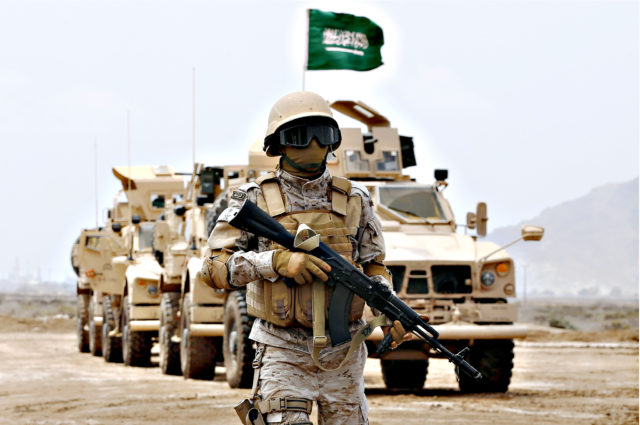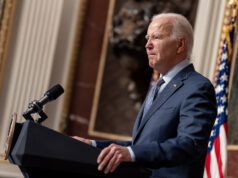
“Unprecedented.” That was the news media’s reflexive adjective of choice to describe the September memorandum of understanding (MOU) between the United States and Israel. The agreement foresees $38 billion in American military aid to the Jewish state over the next 10 years.
We pointed out at the time that the planned aid package was certainly big but not necessarily “unprecedented” or—another journalistic favorite—“largest ever.”
Here’s an update: In an article headlined “With small changes, U.S. maintains military aid to Saudi Arabia despite rebukes over Yemen carnage,” December 15, The Washington Post reported, among other things, that “according to Congressional Research Service, the United States concluded $58 billion in arms deals with Saudi Arabia from fiscal 2009 to 2015.” That would average $9.67 billion in sales annually to Riyadh, compared to $3.8 billion to Jerusalem.
There are differences, to be sure. Saudi Arabia buys U.S. weaponry, Israel receives American dollars with which to buy arms. But the differences are not apples-to-oranges opposites.
The Saudis recycle petro dollars, many of them American, to purchase their “Made-in-U.S.A.” firepower. The Israelis often upgrade aspects of the U.S. military technology they get and feed them back to the Pentagon. In both cases Washington acts primarily to strengthen American interests in the Middle East, secondarily to maintain foreign markets for weaponry that might become prohibitively expensive if produced only for U.S. forces.
There’s no question that U.S. military aid is important for Israel. Nor is there any doubt that Washington derives considerable benefits—in technology, intelligence and other areas—from its relationship with Jerusalem. So, a little more balance on how large that assistance looms, from the U.S. and overall Middle East regional perspectives, as well as from Israel’s viewpoint, is in order.





